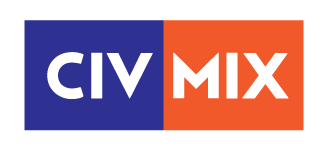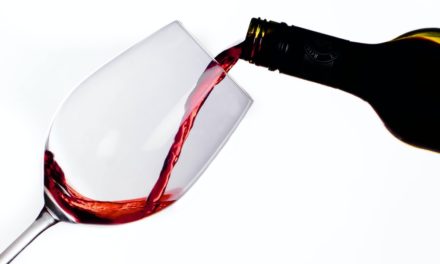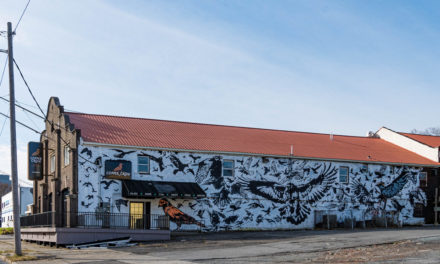It’s been over a year since a viral tweet brought the #MeToo movement into the national consciousness.
In October 2017, actress Alyssa Milano asked sexual harassment or abuse survivors to reply to her on Twitter with “#MeToo” after widespread accusations of disgraced Hollywood producer Harvey Weinstein’s predatory behavior surfaced. The tweet itself spread like wildfire, with millions of people either sharing their unique stories or simply restating the two words over and over.
But #MeToo is not a new movement. The phrase was coined back in 2006 by Tarana Burke, a survivor who sought to advocate for women and girls of color in situations of abuse. Though the campaign existed for over a decade, it didn’t truly gain recognition until endorsed by a white celebrity on social media.
Since Milano’s tweet, a cascade of of sexual abuse and harassment cases involving politicians, corporate executives and entertainers have made headlines. More individuals are challenging perceptions of rape and consent in our culture. More survivors are sharing the impact of sexual, emotional and physical relationship abuse.
“Without question #MeToo and other initiatives have increased awareness and given survivors hope as they see how many others also experienced harassment and abuse,” says Wellspring Executive Director Maggie Fronk.
The conversation and attention is long overdue, but this problem isn’t just occurring in the halls of power. There’s still so much more we can do on a community level.
While #MeToo has made an uproar in Hollywood, most of us don’t have the ability to make a national impact like Milano or other prominent voices in the movement. In fact, the campaign doesn’t directly affect the underserved communities that need it the most.
The same can be said for politics. Though the presidential campaign receives most of the media spotlight, local elected officials arguably have greatest everyday influence on people’s lives. Not only do local representatives leverage tax dollars and allocate budgets, they also are involved in implementing laws. That means our representatives can support survivors in our communities more effectively.
Certainly, awareness is an important step in the process. Fronk recalled when Shenendehowa High School’s track team committed its entire season to dating violence awareness when a college runner was tragically murdered after a breakup with her boyfriend.
Their initiative, #Meters4McCluskey, contributed to a total of 3.7 million meters in an effort to create social change and gained national recognition in Runners World magazine.
But, as Lauren Trunko, women and family services director for YWCA NorthEastern NY, points out, problems persist, and often are taking place in communities that are too often overlooked and marginalized.
“Schenectady County continues to have an alarmingly high rate of domestic violence in relation to the rest of New York State,” she says. “I still don’t think our community realizes how pervasive this issue is and the impact it has on the people they interact with in a professional, social, or casual capacity.”
One in 4 women and 1 in 7 men will experience intimate partner violence in their lifetime, which can include anything from physical violence to sexual coercion and emotional abuse.
The numbers are even more drastic when broken down by race.
According to metoomvmt.org, 7.9 percent of Latinas will be raped by a current or former partner during their lifetime, and 60 percent of African American girls experience sexual abuse by 18. LGBTQ communities are also at risk; 64 percent of trans people will experience sexual assault in their lifetimes, and trans people of color are more than 1.8 times more likely to experience sexual violence than the general population.
Assault can happen to anyone, but an individual’s identity, financial standing or disability can make them much more susceptible to abuse. A person with a disability, for example, is twice as likely to be raped than a person without.
As Fronk from Wellspring puts it: “Someone who is experiencing housing or food instability, unemployed or other impediments of self-sufficiency may be at increased risk of an abuser leveraging that vulnerability to perpetrate abuse.”
This is especially the case regarding money. There’s a perception that violence is the only factor of relationship abuse, but it’s much more complicated than that.
Many of these relationships start off presumably normal, until the partner slowly manipulates them with gaslighting tactics and isolation. Financial isolation, specifically, involves controlling a victim’s ability to acquire, use and maintain financial resources. When it comes to leaving, a person might not have ready access to alternative shelter and other basic needs to support themselves or their families.
In Saratoga County, “the poverty level for single female head of-household exceeds both NYS and national levels,” Fronk says.
Community-based facilities like Wellspring and YWCA Northeastern NY support survivors with a collection of programs including shelter, housing, counseling, advocacy, case management and education. However, funding these programs appropriately can be a struggle.
“There are many providers competing for the same money, and we are all deserving and supplying the growing demand for services in our community.” Trunko adds, “Instead of providing one amount to offer services, we’re required to jump around to many different pots of money which takes an incredible amount of time for our staff to annually write grants, submit reports and undergo audits for each grantor.”
A recent piece of legislation also threatens sources of funding for facilities like YWCA. Shelters are now required to make it voluntary for victims to apply for DSS, which in prior years was a part of the intake process. This was how shelters got reimbursed for stays through the county.
“We’ve been given no information on what to do on the loss of funds we’ll incur as a result or how to make up the deficit with our already tight budgets,” Trunko says.
Gov. Andrew Cuomo is certainly shining a light on issues impacting domestic violence. On May 1, 2018, Cuomo signed legislation to remove guns from domestic abusers, which will now ensure domestic abusers are required to surrender all firearms, not just handguns. This indeed is an important step in gun safety, but is not consistently enforced by police. It also leaves a question about the guns that aren’t registered.
The new administration is implementing policies that affect survivors on a national level. An increasing number of states are introducing bills that would ban abortions six weeks of pregnancy, which is often before a woman would even know she’s pregnant. The six-week ban would undoubtedly affect rape victims, burdening low-income people the most.
Ashley Judd, an actress and prominent voice in the #MeToo movement, recently shared her experience receiving an abortion after an instance of rape. Had she not been able to access abortion services, she says, “I would’ve had to co-parent with my rapist.”
#MeToo came at an important time in our culture, allowing survivors to share their experiences when they’ve otherwise been silenced. However, there’s still action needed to be made at a local level. We cannot advocate for survivors without including people of diverse backgrounds and cultures. Ignoring individuals who are most vulnerable, or already struggling with the outcomes of abuse, will stop us from moving forward.
Look to your local facilities who are working to empower these women, men and non-binary individuals and volunteer, donate and support them.
Call your local representative and tell them about the legislation you support or oppose. Action and advocacy are the only ways to progress #MeToo even further.
If you or a loved one is affected by sexual abuse or assault and need help, call Wellspring at 518-584-8188, YWCA Northeastern NY at 518-374-3386 or the National Sexual Abuse Hotline at 1-800-656-4673.
– Talia Cass.




